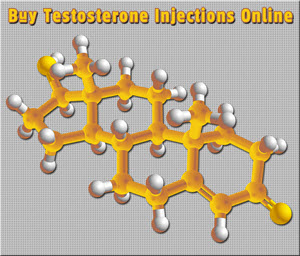Introduction
Smoking is a well-known public health hazard, linked to numerous diseases and conditions. However, its impact on the endocrine system, particularly in American men, is a topic that warrants greater attention. The endocrine system, which regulates hormones and bodily functions, can be significantly disrupted by smoking, leading to a range of health issues. This article explores the specific effects of smoking on endocrine health in American men, with a focus on endocrinology.
The Endocrine System and Smoking
The endocrine system is a complex network of glands and organs that produce, store, and secrete hormones. These hormones are crucial for regulating various bodily functions, including metabolism, growth and development, tissue function, and mood. Smoking introduces numerous harmful chemicals into the body, which can interfere with the normal functioning of the endocrine system.
Impact on Testosterone Levels
One of the primary concerns for American men is the effect of smoking on testosterone levels. Testosterone is a critical hormone that plays a key role in male reproductive health, muscle mass, bone density, and overall well-being. Studies have shown that smoking can lead to lower testosterone levels. This reduction can contribute to decreased libido, erectile dysfunction, and other sexual health issues. Furthermore, low testosterone levels are associated with an increased risk of developing conditions such as osteoporosis and cardiovascular disease.
Influence on Thyroid Function
The thyroid gland, another vital component of the endocrine system, is also affected by smoking. The thyroid produces hormones that regulate metabolism, energy levels, and heart rate. Smoking has been linked to an increased risk of developing thyroid diseases, including Graves' disease and Hashimoto's thyroiditis. These conditions can lead to hyperthyroidism or hypothyroidism, both of which can cause significant health problems. Symptoms may include weight changes, fatigue, mood swings, and heart palpitations.
Effects on Insulin and Glucose Metabolism
Smoking also impacts insulin and glucose metabolism, increasing the risk of developing type 2 diabetes. Insulin is a hormone produced by the pancreas that helps regulate blood sugar levels. Smoking can lead to insulin resistance, a condition in which the body's cells do not respond effectively to insulin. This resistance can result in elevated blood sugar levels, which over time can lead to diabetes. American men who smoke are at a higher risk of developing this chronic condition, which can lead to further complications such as heart disease and kidney damage.
Impact on Adrenal Function
The adrenal glands, which produce hormones such as cortisol and adrenaline, are also affected by smoking. Cortisol, often referred to as the stress hormone, helps regulate metabolism, immune response, and stress response. Chronic smoking can lead to elevated cortisol levels, which can contribute to weight gain, high blood pressure, and an increased risk of developing metabolic syndrome. Additionally, smoking can impair the adrenal glands' ability to produce adrenaline, which can affect the body's response to stress and physical activity.
Conclusion
The impact of smoking on the endocrine system is a significant concern for American men. From lowering testosterone levels to increasing the risk of thyroid diseases, diabetes, and adrenal dysfunction, the effects are far-reaching and potentially severe. It is crucial for American men to be aware of these risks and consider the long-term consequences of smoking on their endocrine health. Quitting smoking can help mitigate these effects and improve overall health and well-being. As research continues to uncover the intricate ways in which smoking disrupts endocrine function, it becomes increasingly clear that cessation is a vital step toward maintaining a healthy endocrine system.
Contact Us Today For A Free Consultation

- Hormonal Imbalances and Sleep Disorders: Impact on American Men's Health and Interventions [Last Updated On: March 7th, 2025] [Originally Added On: March 7th, 2025]
- Vitamin D's Crucial Role in Endocrine Health for American Males [Last Updated On: March 16th, 2025] [Originally Added On: March 16th, 2025]
- Endocrinology's Role in Managing Chronic Fatigue in American Males [Last Updated On: March 17th, 2025] [Originally Added On: March 17th, 2025]
- Dietary Strategies for Enhancing Endocrine Health in American Men [Last Updated On: March 19th, 2025] [Originally Added On: March 19th, 2025]
- Endocrinology's Impact on Weight Management for American Males: Hormones and Strategies [Last Updated On: March 19th, 2025] [Originally Added On: March 19th, 2025]
- Hormonal Changes in Aging American Men: Impacts and Management Strategies [Last Updated On: March 19th, 2025] [Originally Added On: March 19th, 2025]
- Endocrine Health and Cancer Risk in American Men: A Comprehensive Analysis [Last Updated On: March 19th, 2025] [Originally Added On: March 19th, 2025]
- Autoimmune Endocrine Disorders in Males: Symptoms, Diagnosis, and Treatment Strategies [Last Updated On: March 19th, 2025] [Originally Added On: March 19th, 2025]
- PCOS in Transgender Men: Diagnosis, Management, and Holistic Care Approaches [Last Updated On: March 20th, 2025] [Originally Added On: March 20th, 2025]
- Endocrine Disruptors: Impact on American Male Health and Mitigation Strategies [Last Updated On: March 21st, 2025] [Originally Added On: March 21st, 2025]
- Lifestyle Impacts on Endocrine Health: A Guide for American Men [Last Updated On: March 21st, 2025] [Originally Added On: March 21st, 2025]
- Hormonal Optimization in Sports: Enhancing Performance Ethically for American Male Athletes [Last Updated On: March 21st, 2025] [Originally Added On: March 21st, 2025]
- Male Infertility and Endocrinology: Understanding Hormonal Impacts on Fertility [Last Updated On: March 21st, 2025] [Originally Added On: March 21st, 2025]
- Gout in American Males: Endocrine Influences and Management Strategies [Last Updated On: March 22nd, 2025] [Originally Added On: March 22nd, 2025]
- Endocrinology's Impact on Sexual Health in American Males: Hormones, Dysfunction, and Holistic Care [Last Updated On: March 22nd, 2025] [Originally Added On: March 22nd, 2025]
- Hormonal Imbalances and Kidney Health: Critical Insights for American Men [Last Updated On: March 23rd, 2025] [Originally Added On: March 23rd, 2025]
- Endocrine Health and Mental Well-being: A Comprehensive Guide for American Males [Last Updated On: March 23rd, 2025] [Originally Added On: March 23rd, 2025]
- Alcohol's Impact on Endocrine System in American Males: A Comprehensive Analysis [Last Updated On: March 23rd, 2025] [Originally Added On: March 23rd, 2025]
- Hormonal Influences on Joint Health in American Men: A Comprehensive Guide [Last Updated On: March 23rd, 2025] [Originally Added On: March 23rd, 2025]
- Hormonal Impacts on Men's Immune Health in the U.S.: Insights and Strategies [Last Updated On: March 24th, 2025] [Originally Added On: March 24th, 2025]
- Endocrine-Neurological Interplay in American Men: Diagnosis, Management, and Future Research [Last Updated On: March 24th, 2025] [Originally Added On: March 24th, 2025]
- Hormonal Imbalances and Their Role in Managing Male Depression in America [Last Updated On: March 24th, 2025] [Originally Added On: March 24th, 2025]
- Managing Endocrine Disorders in American Men with Autoimmune Diseases: A Comprehensive Guide [Last Updated On: March 24th, 2025] [Originally Added On: March 24th, 2025]
- Hormonal Dynamics and Skin Health in American Men: Androgens, Acne, Aging, and Lifestyle [Last Updated On: March 24th, 2025] [Originally Added On: March 24th, 2025]
- Endocrine Health and Prostate Cancer: Insights for American Men [Last Updated On: March 25th, 2025] [Originally Added On: March 25th, 2025]
- Managing Endocrine Disorders and Heart Disease in American Men: Strategies and Insights [Last Updated On: March 25th, 2025] [Originally Added On: March 25th, 2025]
- Exercise Impacts on Endocrine Function in American Males: Hormonal Health Benefits [Last Updated On: March 25th, 2025] [Originally Added On: March 25th, 2025]
- Endocrine Disorders in Men: Impact on Skin Health and Management Strategies [Last Updated On: March 25th, 2025] [Originally Added On: March 25th, 2025]
- Managing Type 2 Diabetes in American Men: Endocrine Insights and Strategies [Last Updated On: March 25th, 2025] [Originally Added On: March 25th, 2025]
- Endocrine System and Liver Health in American Males: A Comprehensive Analysis [Last Updated On: March 25th, 2025] [Originally Added On: March 25th, 2025]
- Endocrine and Gastrointestinal Health Management Strategies for American Men [Last Updated On: March 25th, 2025] [Originally Added On: March 25th, 2025]
- Hormonal Influences on Muscle Health in American Males: A Comprehensive Overview [Last Updated On: March 25th, 2025] [Originally Added On: March 25th, 2025]
- Endocrine Health's Impact on Respiratory Function in American Males: A Comprehensive Overview [Last Updated On: March 25th, 2025] [Originally Added On: March 25th, 2025]
- Exploring ADHD and Endocrinology: Hormonal Imbalances and New Treatment Avenues [Last Updated On: March 26th, 2025] [Originally Added On: March 26th, 2025]
- Exploring Endocrinological Interventions for PTSD in American Males [Last Updated On: March 26th, 2025] [Originally Added On: March 26th, 2025]
- Endocrinology's Role in Managing Insomnia Among American Males [Last Updated On: March 26th, 2025] [Originally Added On: March 26th, 2025]
- Endocrinology's Vital Role in Treating Male Eating Disorders in the U.S. [Last Updated On: March 26th, 2025] [Originally Added On: March 26th, 2025]
- Stress Impact on Male Endocrine Health: Hormones and Holistic Management Strategies [Last Updated On: March 26th, 2025] [Originally Added On: March 26th, 2025]
- Hormonal Imbalances and Hearing Loss in American Males: Causes and Prevention [Last Updated On: March 27th, 2025] [Originally Added On: March 27th, 2025]
- Hormonal Imbalances and Foot Health: A Guide for American Men [Last Updated On: March 27th, 2025] [Originally Added On: March 27th, 2025]
- Caffeine's Impact on Endocrine Health in American Males: Cortisol, Insulin, Testosterone, Thyroid [Last Updated On: March 27th, 2025] [Originally Added On: March 27th, 2025]
- Endocrine Health and Vision: Insights for American Males [Last Updated On: March 27th, 2025] [Originally Added On: March 27th, 2025]
- Hormonal Fluctuations and Oral Health in American Men: Insights and Recommendations [Last Updated On: March 28th, 2025] [Originally Added On: March 28th, 2025]
- Hormonal Hair Loss in American Men: Causes, Treatments, and Future Research [Last Updated On: March 28th, 2025] [Originally Added On: March 28th, 2025]
- Hormonal Imbalances and Male Anxiety: Endocrinological Insights and Treatments in the USA [Last Updated On: March 28th, 2025] [Originally Added On: March 28th, 2025]
- Sleep's Impact on Endocrine Health: Key Hormones and Practical Sleep Improvement Tips for American Males [Last Updated On: March 28th, 2025] [Originally Added On: March 28th, 2025]
- Endocrine System's Impact on Digestive Health in American Males: A Comprehensive Overview [Last Updated On: March 28th, 2025] [Originally Added On: March 28th, 2025]
- Nutrition's Impact on Endocrine Health in American Males: Key Nutrients and Diets [Last Updated On: March 29th, 2025] [Originally Added On: March 29th, 2025]
- Endocrine Health and Nail Changes in American Males: A Vital Connection [Last Updated On: March 29th, 2025] [Originally Added On: March 29th, 2025]
- Endocrinological Approaches Enhance Bipolar Disorder Treatment in American Men [Last Updated On: March 30th, 2025] [Originally Added On: March 30th, 2025]
- Endocrine Disorders and Eye Health: Management Strategies for American Men [Last Updated On: March 31st, 2025] [Originally Added On: March 31st, 2025]
- Endocrine Health and Hand Conditions in American Males: Insights and Management [Last Updated On: April 1st, 2025] [Originally Added On: April 1st, 2025]
- Endocrine Disorders and Ear Health: A Comprehensive Guide for American Men [Last Updated On: April 1st, 2025] [Originally Added On: April 1st, 2025]
- Hormonal Fluctuations and Nasal Health in American Men: Symptoms and Management [Last Updated On: April 1st, 2025] [Originally Added On: April 1st, 2025]
- Hydration's Crucial Role in Endocrine Health for American Males [Last Updated On: April 3rd, 2025] [Originally Added On: April 3rd, 2025]
- Endocrine Health and Throat Conditions in American Males: Hormonal Impacts and Management [Last Updated On: April 5th, 2025] [Originally Added On: April 5th, 2025]
- Schizophrenia in Males: The Role of Endocrinology in Treatment and Management [Last Updated On: April 6th, 2025] [Originally Added On: April 6th, 2025]
- Managing Endocrine Disorders in American Men with Lung Conditions: An Endocrinological Approach [Last Updated On: April 6th, 2025] [Originally Added On: April 6th, 2025]
- Dietary Supplements' Impact on Endocrine Health in American Males: A Comprehensive Analysis [Last Updated On: April 8th, 2025] [Originally Added On: April 8th, 2025]
- Hormonal Balance and Heart Health: A Guide for American Men [Last Updated On: April 9th, 2025] [Originally Added On: April 9th, 2025]
- Exploring Hormonal Influences on Autism in American Males: Endocrine Insights and Therapies [Last Updated On: April 10th, 2025] [Originally Added On: April 10th, 2025]
- Endocrine System's Impact on Blood Health in American Males: Hormones, Disorders, and Management [Last Updated On: April 10th, 2025] [Originally Added On: April 10th, 2025]
- Mental Health's Impact on Endocrine Function in American Males: An Integrated Approach [Last Updated On: April 11th, 2025] [Originally Added On: April 11th, 2025]
- Exploring Endocrine Approaches to Treating OCD in American Males [Last Updated On: April 11th, 2025] [Originally Added On: April 11th, 2025]
- Endocrine and Nerve Health in American Males: Hormones, Disorders, and Lifestyle Impact [Last Updated On: April 11th, 2025] [Originally Added On: April 11th, 2025]
- Managing Endocrine Disorders in American Men with Kidney Disease: A Comprehensive Guide [Last Updated On: April 13th, 2025] [Originally Added On: April 13th, 2025]
- Hormonal Balance and Brain Health in American Men: Endocrinology Insights [Last Updated On: April 13th, 2025] [Originally Added On: April 13th, 2025]
- Hormonal Influences on Skin Health in American Men: A Comprehensive Guide [Last Updated On: April 15th, 2025] [Originally Added On: April 15th, 2025]
- Managing Endocrine Disorders in Men with Muscle Conditions: A Comprehensive Guide [Last Updated On: April 16th, 2025] [Originally Added On: April 16th, 2025]
- Exploring Endocrine Therapy for Managing ADD Symptoms in American Males [Last Updated On: April 16th, 2025] [Originally Added On: April 16th, 2025]
- Endocrinology's Crucial Role in Treating Male Eating Disorders in the USA [Last Updated On: April 16th, 2025] [Originally Added On: April 16th, 2025]
- Endocrine Disorders and Heart Health: Management Strategies for American Men [Last Updated On: April 17th, 2025] [Originally Added On: April 17th, 2025]
- Lifestyle Choices Impact Endocrine Health in American Males: Diet, Exercise, Stress, Sleep, Substance Abuse [Last Updated On: April 17th, 2025] [Originally Added On: April 17th, 2025]
- Aging and Endocrine Function in American Males: Impacts and Management Strategies [Last Updated On: April 17th, 2025] [Originally Added On: April 17th, 2025]
- Endocrine Health and Liver Function: Impacts on American Males' Wellness [Last Updated On: April 19th, 2025] [Originally Added On: April 19th, 2025]
- Hormonal Influences on Bone Health in Aging American Men [Last Updated On: April 19th, 2025] [Originally Added On: April 19th, 2025]
- Endocrine Health's Impact on Joint Function in American Males: Hormonal Connections [Last Updated On: April 19th, 2025] [Originally Added On: April 19th, 2025]
Word Count: 576





















